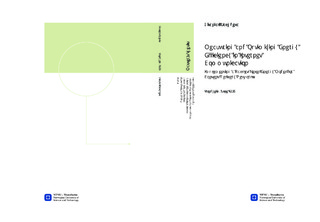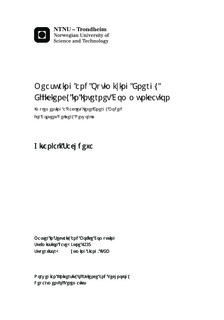| dc.contributor.advisor | Jiang, Yuming | nb_NO |
| dc.contributor.author | Sachdeva, Gitanjali | nb_NO |
| dc.date.accessioned | 2014-12-19T14:15:31Z | |
| dc.date.available | 2014-12-19T14:15:31Z | |
| dc.date.created | 2013-09-25 | nb_NO |
| dc.date.issued | 2013 | nb_NO |
| dc.identifier | 651452 | nb_NO |
| dc.identifier | ntnudaim:8787 | nb_NO |
| dc.identifier.uri | http://hdl.handle.net/11250/262857 | |
| dc.description.abstract | Green ICT (Information and Communication Technology) aims at reducing the environmental impacts of ICT operations, maximizing energy efficiency and promoting recyclability. The ICT industry is resource intensive with rapidly increasing demands for more infrastructure and power. It is heavily dependent on full-time network connectivity. Therefore, networks play a crucial role in the overall green ICT initiatives. Various research efforts are being made by network equipment manufacturers as well as researchers to promote energy efficiency in the networks. The target of this master thesis is to develop mechanisms that allow measuring the energy consumption in networks and using them to optimize network usage. The thesis implements a packet-level energy accounting model using NS-3 simulator. The main idea is that IP packets collect the information of energy they consume at each hop while traversing a network. This information is later processed to account for the overall network energy consumption.The thesis work analyzes a specific use case of selecting energy-efficient servers in Content Delivery Networks (CDNs) to deliver content to end users. The energy model is implemented and tested for different traffic scenarios and sample network topologies. Simulation results show that the model can prove highly useful in the CDN use case. The energy accounting scheme allows end users to choose energy-efficient server alternatives for accessing content over the internet. End users are made aware of their carbon footprint and are able to contribute to green networking.Additionally, there is also a possibility to integrate the model with other network performance metrics such as network throughput in order to increase its usability. | nb_NO |
| dc.language | eng | nb_NO |
| dc.publisher | Institutt for telematikk | nb_NO |
| dc.title | Measuring and Optimizing Energy Efficiency in Internet Communication: Implementing a Packet-Level Energy Model for Content Delivery Networks | nb_NO |
| dc.type | Master thesis | nb_NO |
| dc.source.pagenumber | 86 | nb_NO |
| dc.contributor.department | Norges teknisk-naturvitenskapelige universitet, Fakultet for informasjonsteknologi, matematikk og elektroteknikk, Institutt for telematikk | nb_NO |

